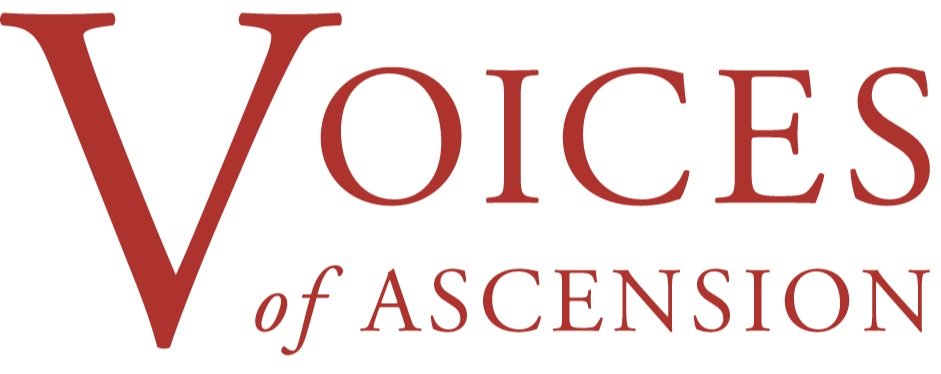Voices of Connection: 11/08 Schoenberg - Friede auf Erden
FROM GUEST CURATOR NEIL FARRELL
There are literally dozens of individual concerts in my history with Voices of Ascension that stand out in memory. The Duruflé Requiem in that seminal festival performance; a Monteverdi Vespers around 1990 or so (for which it appears the archival recording must have been lost), in which my dear friends James Bassi and Thom Baker joined me on the "Duo Seraphim" trio; the one that coincided with the release of VoA's first Delos recording (originally "Ave Maria," later "Mysteries Beyond"); and others which if named could make this essay far too long to read even during this nine and a half minute long masterpiece.
Somewhere in the 90's we sang "Friede auf Erden" in a concert at the Church of the Ascension, and it may have been the most thrilling experience I've had with VoA. It had all the emotion of that first Duruflé Requiem, during which we were all still mourning the loss of so many dear friends and colleagues to the AIDS crisis, yet packed that energy into a about one-fifth of the Requiem's 45 minutes or so. Peace on Earth has seemed to become ever more and more important to advocate for as the 20th century turned into the 21st, but we lacked not one bit of commitment to it in that performance, at the end of which I know at least my colleagues in the tenor section were both emotionally AND vocally spent!
Schoenberg gets something of a raw deal in the eyes and ears of the general music world as the guy who destroyed harmony. Listening to this piece shows he did nothing of the kind. From his orchestration of Brahms chamber music to choral music which nipped at the heels of the explosion of harmonic possibility his later development of the 12-tone system would detonate, Schoenberg more expanded the pallette afforded composers than threw its old techniques out with the baby AND the bathwater. "Friede auf Erden" finds him on the precipice of pushing "tonal" harmony as far is it could go without breaking. In doing so he demonstrates that rather than eschewing it entirely, he has in fact come to understand it so thoroughly that, having explored everything he could do within its strictures, he yearned to escape the cage in which centuries of music history had tried to contain it. Wagner, Liszt, Hindemith, and many others felt the same need to burst the seams that held that cage together, but found nooks and crannies to push out here and there, lumps protruding out of the still recognizable rectilinear box, where Schoenberg, apparently wishing to be done with it entirely, just drops a big pile of dynamite in the middle of it, and blows up the whole shebang. That hadn't yet happened, though, when "Friede auf Erden" was complete, and the results of the efforts to push at the seams rather than blow them up entirely yielded some unspeakably beautiful "failures" to escape that box. Herewith, evidence that Schoenberg's great compositions both preceded AND followed his invention of the 12-tone system.
As I don't know of a recording by Voices of Ascension, I offer here a performance recorded in the 1980's by Musica Sacra, led by the late Richard Westenberg, featuring many of the singers (your author included) who would go on to become charter members of Voices of Ascension, in the glorious acoustic of New York's Cathedral of St. John the Divine.
– Neil Farrell, founding member of Voices of Ascension
